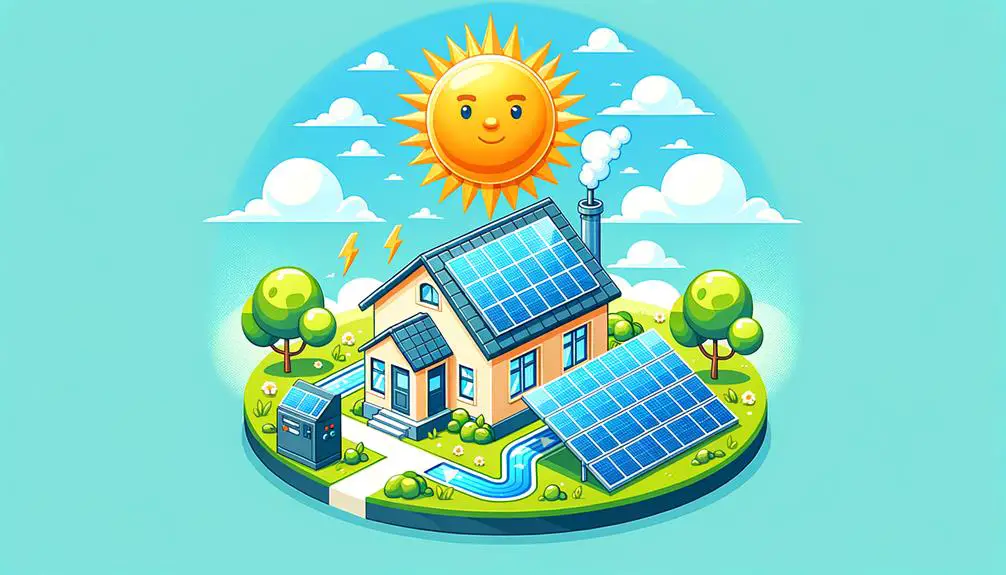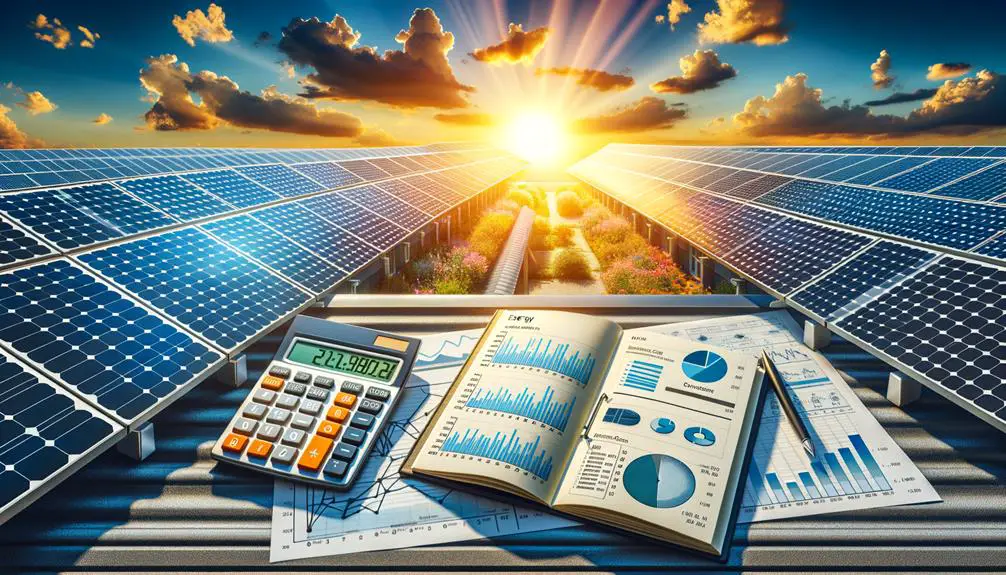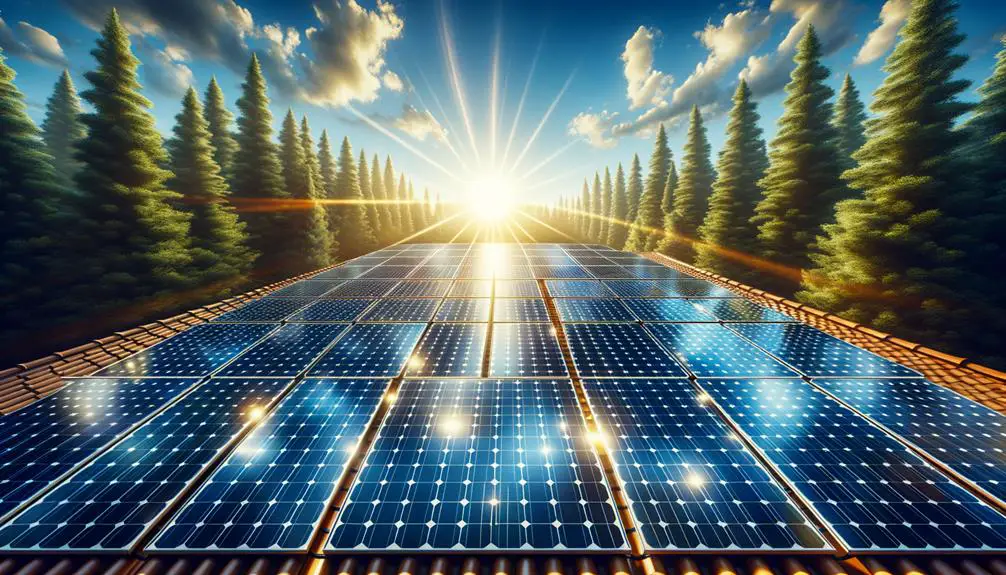Maximize How Many Kwh Solar Panels Produce With These Tips and Tricks
Maximizing how many kWh solar panels produce isn’t as straightforward as I hoped.
The amount of electricity a solar panel can generate, measured in kilowatt-hours (kWh), hinges on a variety of factors, including the panel’s size, the efficiency of its cells, the amount of sunlight it receives, and even the angle at which it’s installed.
I’ll guide you through understanding these variables and how they combine to affect your solar output. With a clearer picture of your potential energy production, you’ll be better equipped to evaluate whether solar investment aligns with your energy needs and goals.
Continue Reading to Understand These Key Points:
- Solar panel efficiency is affected by factors such as panel degradation, weather conditions, geographical location, panel orientation, and shading.
- The kWh output of solar panels can be calculated by considering panel size, solar irradiance, and performance ratios.
- Real-world production examples show that solar panel kWh production varies based on factors like panel degradation and weather variability.
- Maximizing solar panel efficiency involves proper panel orientation, regular maintenance, monitoring weather patterns, investing in high-quality panels, and integrating solar energy with other energy-saving measures.
Understanding Solar Panel Output
To accurately gauge a solar panel’s efficiency, we must examine its power output, typically measured in kilowatt-hours (kWh). This output is the cumulative amount of energy a panel can produce under ideal conditions within a specific timeframe.
Understanding this metric is crucial, as it directly correlates with the panel’s capacity to convert sunlight into electricity.
Panel degradation plays a significant role in output over time. As solar panels age, their efficiency naturally decreases due to exposure to the elements and the photovoltaic (PV) materials’ wear and tear.
This degradation rate is measured in percentage loss per year, affecting the kWh production. Manufacturers typically guarantee that panels will retain a certain level of efficiency after a given period, often around 80-90% after 20-25 years.

Weather impact is another critical factor to consider. Solar panels rely on sunlight, so their output fluctuates with weather conditions. Regions with more consistent, intense sunlight yield higher kWh production.
Conversely, panels in areas prone to overcast skies, precipitation, or extreme temperatures may experience reduced efficiency. Understanding local weather patterns is essential for estimating average power output and making informed decisions about solar panel investments.
Factors Influencing Energy Production
Several factors significantly influence the energy production of solar panels, including geographical location, panel orientation, and shading. The efficiency of a solar array can fluctuate based on these variables, making it crucial to understand their impact.
Panel orientation plays a pivotal role; ideally, solar panels should face the direction that receives the most sunlight throughout the year. In the Northern Hemisphere, this is typically southward.
The optimal angle isn’t just about compass direction; it also involves the tilt relative to the ground, which should be adjusted to the latitude of the installation site to maximize exposure.
Weather conditions also dictate the amount of energy produced. Clear, sunny skies are optimal for solar panels, but cloud cover can significantly reduce their output. Snow, dust, or other obstructions that cover the panels will impede energy production until they’re cleared away.
Shading from trees, buildings, or other structures can cast shadows on panels, causing a drop in efficiency. Even partial shading can lead to a disproportionate loss in power output.
I’ve observed that taking these factors into account is essential for anyone looking to get the most out of their solar panels.
Calculating Your Panel’s Kwh
Understanding how to calculate your solar panel’s kWh output is crucial for evaluating the efficiency and financial return of your solar investment. To start, you’ll need to consider the panel size, which is typically measured in watts.
The size of the panel determines its potential energy production; for instance, a 300-watt panel can theoretically generate 300 watts of power each hour under ideal conditions.
You must account for the solar irradiance in your location, which is the amount of sunlight available for conversion into electricity. This figure is usually expressed in kilowatt-hours per square meter (kWh/m²).
Multiplying the panel’s size by the peak sun hours in your area gives you a rough estimate of the energy production per day.

The weather impact can’t be ignored. Cloud cover, temperature, and seasonal changes significantly influence your panel’s actual output. For example, on a cloudy day, your panels won’t reach their maximum potential, thus reducing the kWh produced.
To refine your calculation, you can use performance ratios that adjust for losses due to weather impact, panel degradation over time, and system inefficiencies. By integrating these factors, you’ll arrive at a more accurate estimation of your solar panel’s kWh output, enabling a more informed assessment of your solar setup’s performance.
Real-World Production Examples
Let’s examine some real-world examples of solar panel kWh production to illustrate the concepts discussed above. When we look at actual solar installations, we see a variety of outcomes due to several factors, including panel degradation and weather variability.
A residential solar panel system in sunny Arizona might start off producing 10 kWh daily. However, considering panel degradation, its output could decrease by about 0.5% to 1% per year. This means that after 20 years, the system may produce closer to 8 kWh per day, all else being equal.
A similar system in the Pacific Northwest might average 7 kWh daily due to less intense sunlight and more overcast days. Here, weather variability plays a significant role in day-to-day production, which can fluctuate more dramatically with changing seasons and cloud cover.
To evoke emotion, consider these points:
- The pride of a homeowner as their system generates enough power to cover their needs on a sunny day.
- The frustration when unexpected weather patterns reduce anticipated solar yields.
- The satisfaction from understanding and accounting for panel degradation, thus ensuring a long-term sustainable energy solution.
Through these examples, we see that solar panel energy production isn’t just a number—it’s a dynamic output influenced by both predictable and unpredictable factors.
Maximizing Solar Panel Efficiency
To maximize the efficiency of solar panels, homeowners and businesses must consider factors such as optimal placement, regular maintenance, and the use of quality components.
Panel orientation is a critical aspect; it’s not just about facing south in the Northern Hemisphere. The angle of tilt and even the degree of azimuth can significantly affect output. Panels tilted at an angle equal to the latitude of their location harness the most sunlight.

But it doesn’t stop there. Seasonal adjustments can yield better results. As the sun’s position changes, the optimal angle for solar panels also shifts. Adjusting the tilt a couple of times a year to account for the seasonal variation can squeeze out more energy from the sun.
These strategies, however, must be underpinned by rigorous maintenance. Ensuring panels are free from dust, debris, and snow is fundamental to maintaining peak performance. Even the most ideally oriented solar array can suffer from underperformance if left unattended.
The incorporation of high-quality inverters and charge controllers can further bolster efficiency, ensuring that the energy produced is effectively converted and stored.
Final Thoughts
Just like a thriving garden harnessing the sun’s power, my solar panels convert light into energy—each a green leaf in an electric forest.
The yield, though, isn’t just about the sun’s kiss; it’s influenced by the soil of location, the water of weather, and the care of maintenance.
By understanding and optimizing these factors, I ensure my solar array flourishes, gifting me with a bounty of kWh that reflects the meticulous cultivation of my renewable energy landscape.
